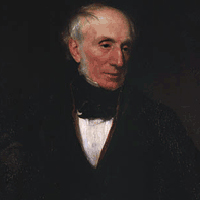The World Is Too Much With Us by William Wordsworth: Summary and Analysis
The World Is Too Much With Us is a sonnet by William Wordsworth is about the loss of nature caused by humankind. People are busy on getting and spending. For the speaker, we waste our powers for nothingness. For us, nature is little and incomplete, People have given their hearts away. This is a sordid boon. As the speaker feels, the sea is in close relation to the moon and the winds will be howling at all hours. But people are out of such tune.

William Wordsworth (1770-1850)
Seeing all these, the speaker desires to be a pagan so that he could stand on the pleasant island and would have a glimpse of the beautiful seashore. It would definitely make him less sad. Similarly, chanting on the sea land he could see Proteus rising from the sea or could hear the blow of Triton.
The sonnet, ‘The World Is Too Much With Us', is ironical in its representation of humans in relation to nature. For the poet, the nature is vast, large and indefinite whereas it is incomplete, little and insignificant to the people. Nature is offering real pleasure and beauty to the people, but people are running behind unseen and artificial pleasure and beauty. It is the real irony of human life that we never care what we have but we always desire for something probable and possible. The same thing is taking place in the life of modem people. They have no time to consider and enjoy the beauty of the sea, the moon and the winds. Easily available and universal natural beauties have been denied by people in the course of getting and spending something artificial, temporary, and inanimate. The relationship between mankind and nature in the present context is only ironical.
The World Is Too Much With Us is a sonnet written in Iambic pentameter. This sonnet is in the pattern of Petrarchan model. This sonnet is divided into two parts. The first part is called octave and the second part is sestet. The octave follows the rhyme scheme of ABBA ABBA and the sestet follows a rhyme scheme of CDCDCD. The first part introduces the problem, whereas the second part provides the solution. In this poem, all the poetic lines are almost equal in their length. The poet heavily depends on the use of allusion and mythology. The word 'Pagan' refers to an ethnic man of Germanic root. Similarly, Proteus and Triton are the names of two gods who are closely associated with the myth of nature. In the middle part of the poem, the phrase “Great God” has been capitalized. It means the speaker feels helpless in the human world and he desires to be supported by the god. The rhyme scheme has definitely supported the poet to make it more persuasive. The title of the poem has been repeated in the very first line. By using the pronoun 'we', the poet is also taking responsibility of such a loss of nature. Most of the words like 'getting and spending' 'little' and 'forlorn' indicate commerce and modernity. At two different places, the poet takes the help of exclamation mark "sordid boon"! and "GREAT GOD"!.
Overall, the poem is well organized with the selection of proper diction. The poet has balanced the number of syllabic words. Wordsworth seems to have consciously crafted this sonnet with proper consideration of rhyme, rhythm and musicality.
Related Topics
My Heart Leaps up when I Behold
Ode: Intimations of Immortality
A Slumber Did My Spirit Seal (Lucy Poem)
"I Travell'd Among Unknown Men" (Lucy Poem)
She Dwelt Among the Untrodden Ways (Lucy Poem)
Strange Fits of Passion Have I Known (Lucy Poem)
Three Years She Grew in Sun and Shower (Lucy)
Biography of William Wordsworth
 |
bachelorandmaster.com |